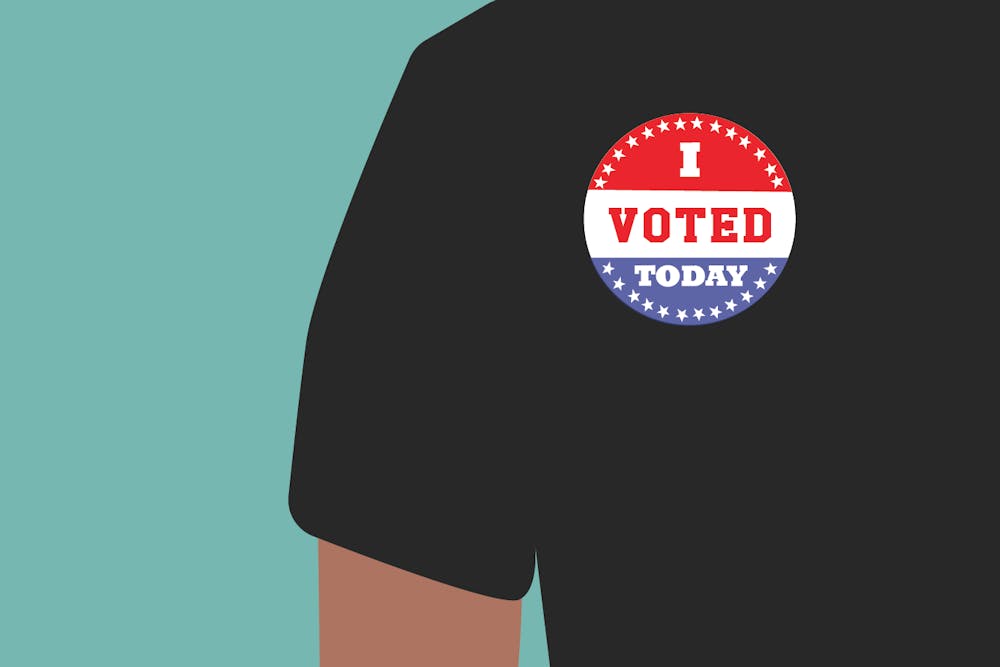In case you haven't heard from the endless Instagram ads, texts from your local political parties, and overall tension in the air, there's an election in November.
Vote signs are plastered all over Penn’s campus, while ads for Biden and Trump play between YouTube videos and on Instagram. This is going to be a very atypical election.
This year, there’s a new barrier to voting: COVID–19.
While the peak of pandemic media coverage occurred back in April, the pandemic itself is still prominent in the United States. To date, the U.S. has hit a total case number of 7.5 million with 210,000 deaths. For good reason, a lot of U.S. citizens are terrified to go out and vote in person, even with proper social distancing and mask usage. Coupled with the recent news that America's own commander–in–chief has acquired the illness, fear plagues households.
That raises a new question: how do people vote?
Personally, I haven’t looked enough into voting this November, and I feel a bit guilty for that. Schoolwork and midterms have been overwhelming, and I've always just assumed that I'm going to vote without actually thinking about it logistically. I’m aware of mail–in voting, but I never really researched it until now. To vote this election, you can either register online, via mail, or in person. Registration closes on October 19th, so if you haven’t yet, it'd be a great idea to look into your options quickly.
You can find the online registration site for Pennsylvania here. Afterwards, there are two main methods that have been discussed for voting this election: mail–in voting and in–person voting. Voting n person requires going to a local voting site, found here. On the other hand, mail–in ballots are sent to your address, so you can mail them in. Fortunately, with COVID, a lot of states have changed requirements so that anyone can request a mail–in ballot. Once again, watch deadlines, because requests are due October 27th in Pennsylvania.
This sounds easy enough, yet voting has been a controversial topic during the presidential and vice presidential debates this year.
If you watched the first presidential debate on Tuesday, September 29, you were probably a bit shocked by the unprofessionalism of it all. Beyond that, you may have heard voting come up as a topic of conversation. Biden prominently encouraged voters to utilize mail–in ballots as an alternative to going in person, whereas Trump argued that mail–in voting was corrupt and would lead to a fraudulent election. On top of that, there’s, of course, Trump’s infamous quote of the night, “Bad things happen in Philadelphia.”
In saying this, he was referring to the supposed poll watchers who were refused entrance into polling places. In actuality, the situation involved satellite offices, where voters usually request and turn in mail–in ballots, and the fact that Trump supporters, who were not certified poll watchers, were not allowed in.
Again, this just goes back to this point Trump keeps trying to make: that mail–in voting is bad shouldn’t be trusted.
There are definitely risks to mail–in voting. In the past, ballots have been thrown out for simply lacking signatures or being sent a bit past the deadline. It’s a bit riskier, in a sense, but at the same time, it’s necessary this election. Not all people are comfortable going out to vote. There are plenty of people, myself included, who live near or around high–risk individuals who cannot get COVID–19 without severe consequences. Taking away an option that can reduce this risk is harmful to a ton of passionate citizens.
On top of that, discouraging mail–in voting can actually severely impact the election. Since COVID–19 began, there’s been a reported correlation with Republicans not taking the necessary precautions to minimize the spread of the disease, while the Democratic party typically has pushed a stronger masking and quarantining agenda. In an analysis of COVID–19 media consumption research conducted by Annenberg professor Kathleen Hall Jamieson and Dolores Albarracín, "Republicans also were more likely to believe that the CDC was exaggerating the threat of the coronavirus to hurt President Donald Trump." In addition, President Trump hasn't mandated mask–wearing in the White House, even after getting diagnosed with COVID. This could mean that without mail–in voting, Democrats might not be as comfortable going out to vote as Republicans are.
In addition, because COVID–19 is more prominent in lower–income communities and can reap more dire consequences there. Without mail–in voting, people who aren’t as privileged or well–off may also not get their voices heard. These people would be wary about taking such a risk.
With all that said, more than ever, citizens need to vote this election. Even though Trump is pushing an agenda that mail–in ballots are corrupt, voters should still utilize this resource if needed. While Trump argues mail–in ballots will lead to a fraudulent election, it really seems the opposite. If mail–in ballots are not counted, the election will not be representative of all citizens.

